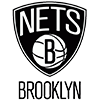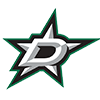Fantasy basketball comes in all different shapes and sizes. Roster formats, league scoring, and maximum adds/trades all impact how managers approach their NBA fantasy draft. No league setting is more important than fantasy basketball scoring, which is the way your league determines its weekly and season winner.
The most traditional scoring systems are head-to-head categories, Rotisserie and points. How you approach your fantasy basketball rankings depends largely on the type of scoring involved, making it critical for you to know the differences. Learning about different scoring may also help beginners determine which type of league they're most interested in joining. Rotisserie tends to be more advanced, while points is similar to fantasy football and requires less strategy with balanced roster building.
How Fantasy Basketball Scoring Works in Different League Formats
Points leagues assign numerical values to each statistic. For example, a rebound is worth 0.4 points, an assist is worth 0.6 points, and a steal is worth 0.8 points. This is similar to how fantasy football is played and easy to understand. It's great to use RotoWire's NBA projections when it comes to points leagues because you can project how many fantasy points a player may earn each night.
Rotisserie leagues take each team's statistics over the 82-game NBA season and rank them against one another. The team with the most rebounds in a 10-team league, for example, earns 10 points. The team with the fewest assists earns one point. Those rankings are then added together, with the highest point total earning the championship.
In head-to-head category leagues, managers play a different team each week and compare stats against one another. Some leagues have it where each category won each week is a "win" in the overall standings, so a team that won points, rebounds, assists and steals in a nine-category league goes 4-5. Others have it where the team with the most won categories earns a single win–so in that scenario, winning four of nine categories makes you 0-1 for the week.
Best Strategies for Points Leagues vs. Category Leagues
Balance doesn't matter in points leagues. Unlike NBA starting lineups, you won't need to have similar numbers of guards, forwards and centers. Though you'll need to fulfill roster requirement minimums, you can simply load up on the best players who you believe will accumulate the most fantasy points each night.
In category leagues, balance matters. You can't simply load up on inefficient players just because they earn plenty of counting stats. Your team can be weighted toward certain categories in head-to-head leagues, but all statistical categories count the same, unlike in points leagues. In head-to-head leagues, drafting players on the NBA injury report is a great strategy if they're able to help down the stretch or in the fantasy playoffs.
Players to Target in Different Fantasy Basketball Scoring Settings
In points leagues, fantasy basketball managers will be less concerned with efficiency ruining percentages or turnovers. You're looking for sheer volume, and points are typically the most valuable statistic in those leagues. That combination makes players like LaMelo Ball, Trae Young, Cam Thomas and Paolo Banchero all get a slight bump up from where their NBA fantasy ADP may be in other league formats.
In Rotisserie leagues, balance is critical. A player like Giannis Antetokounmpo is elite, but he is going to make competing in free throw percentage difficult. Target balanced players across the board such as Franz Wagner, Desmond Bane and Bam Adebayo, who can each have a few dollars added to their fantasy basketball auction values.
In head-to-head leagues, fantasy basketball managers can target players who dominate in specific areas. Even further, targeting players who dominate in scarce stats such as steals, blocks, and (to a degree) 3-pointers can be a massive advantage for your team. We suggest targeting players such as Dyson Daniels, Tari Eason, Chet Holmgren and Brandon Miller on your NBA fantasy draft cheat sheet to help give you an edge.
The type of scoring your league has is critical to understanding how to navigate your draft strategy and activity during the season. Consider what kind of league you want to play in before searching for the right league settings for you, and subscribe to RotoWire so you're ready to analyze and read about the best players for each scoring setting.





















